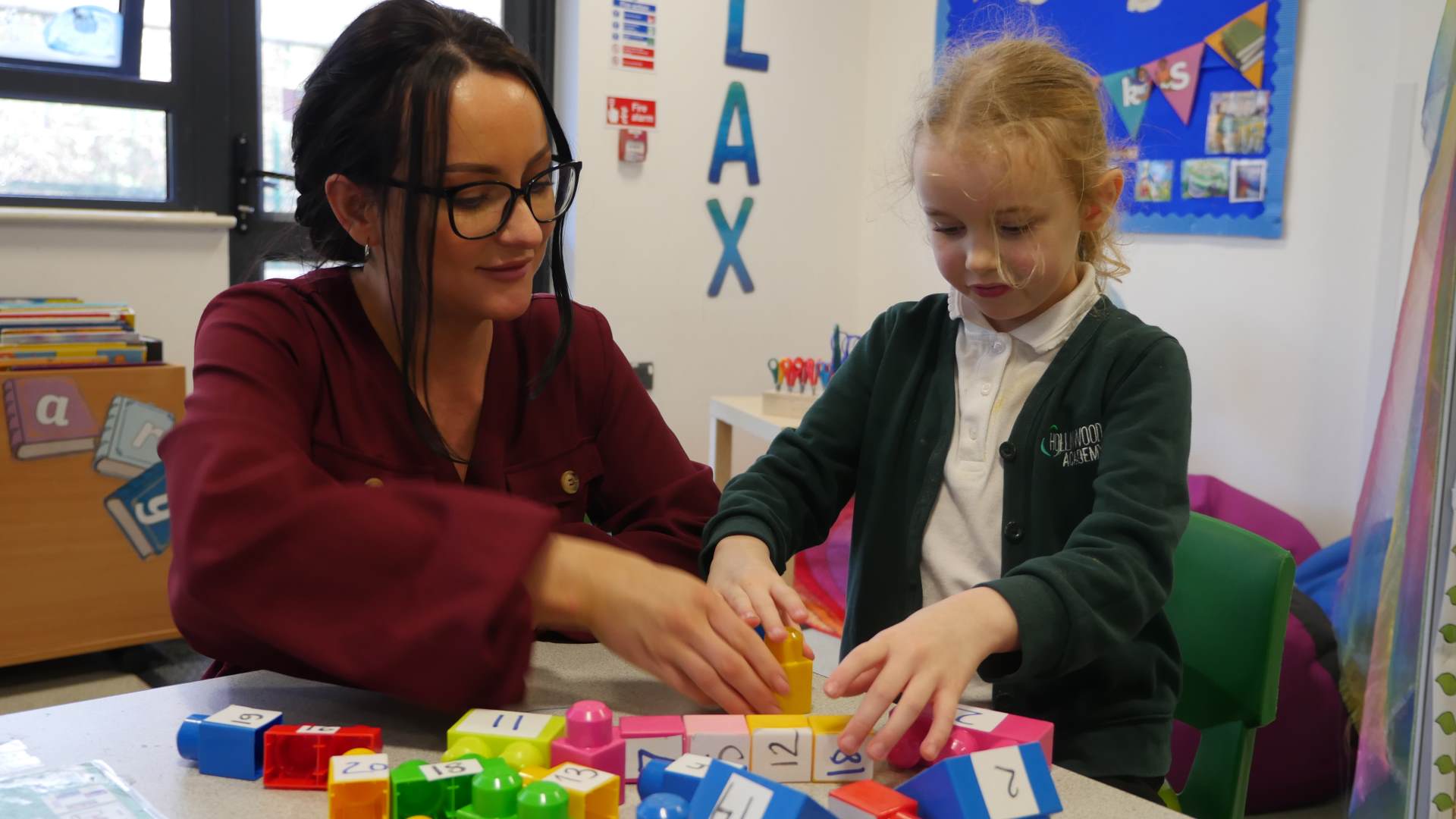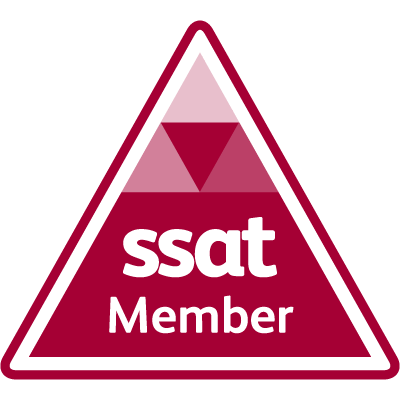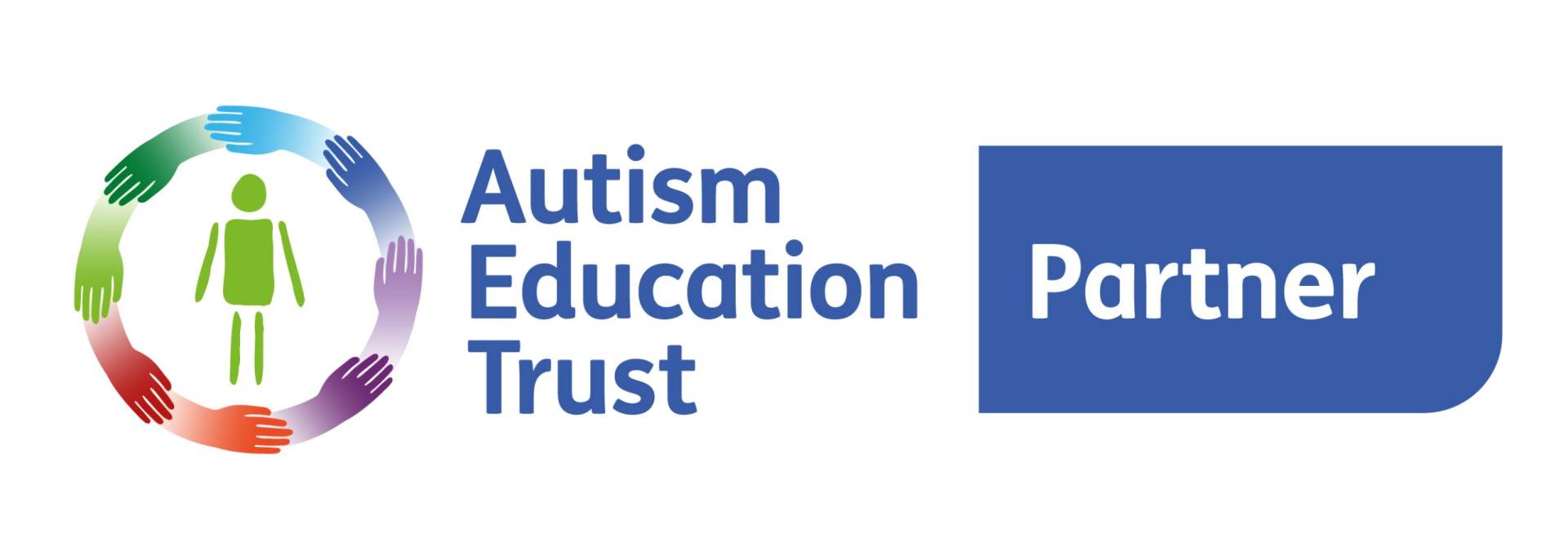Primary Maths

The essence of mathematics is not to make simple things complicated, but to make complicated things simple.
- Stan Gudder (Mathematician)
At Hollinwood Academy, we teach maths creatively, incorporating the use of concrete manipulatives to help children understand abstract concepts and apply them to their learning.
It is our aim across the Primary phase to expertly match the National Curriculum with individual need, rather than teaching from a specific year group.
Through a combination of teaching tools such as Sensory Play and the use of Every Day examples, we aim for our children to achieve the highest level of functional maths that matches their ability.
At every stage, we want to raise the confidence of our learners.
Sensory Play – We use sensory play as an effective tool in teaching mathematics, both at introductory level and for the consolidation of skills and learning.
Every Day Examples – We aim to give our children mathematics skills for life, and regularly help them apply their newly learned skills in ‘real world’ scenarios.
Confidence – We work with our children every day to build their confidence in maths, encouraging an atmosphere where we learn from our mistakes.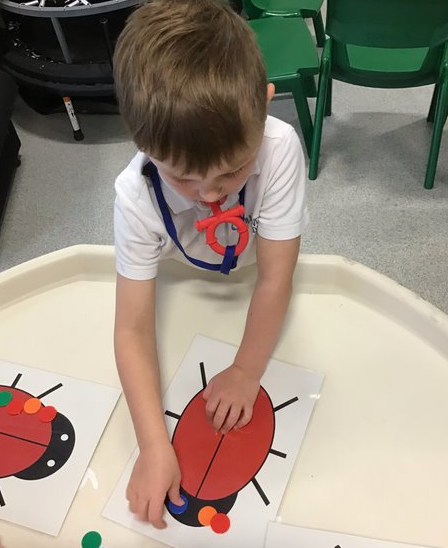
Maths Lessons at Hollinwood Academy
For all children and young people to succeed and achieve, at Hollinwood Academy we strive to teach maths in the most creative ways possible and incorporate the use of concrete manipulatives. Using these manipulatives helps children to understand abstract concepts and embed their learning. Maths is a fundamental part of the curriculum and everyday life. We aim to teach children and young people from the National Curriculum for primary, but we expertly match this to their individual needs rather than teaching from a specific year group. Through a combination of teaching tools such as sensory play and the use of everyday examples, we aim for our children and young people to achieve the highest level of functional maths that matches their ability. At every stage, we want to raise the confidence of our learners.
Our research-based schemes of learning are designed to support a mastery approach to teaching and learning and are consistent with the aims and objectives of theNational Curriculum. The emphasis is on depth before breadth, allowing children and young people to acquire a thorough understanding of each topic. Opportunities to revisit previously learned skills are built into later blocks, ensuring that knowledge is reinforced and retained.
Furthermore, we aim to instil in our learners the ability to apply their mathematical skills in everyday situations. By using real-world examples, we promote the practical application of maths, enabling our children and young people to develop a solid foundation in functional mathematics skills that they can carry with them throughout their lives.
Building confidence in maths is a key aspect of our teaching approach. We create a supportive environment where children feel safe to make mistakes and learn from them. Through daily interaction and guidance, we work with our learners to develop their mathematical self-assurance, fostering an atmosphere of growth and achievement.
At Hollinwood Academy, our Maths lessons are delivered daily, with a focus on tailoring our teaching to meet the individual needs of our learners. Our dedicated and highly skilled staff utilise a blend of experience and knowledge, supported by the purposeful integration of technology. We understand that each child and young person is unique, and we strive to provide them with the skills and knowledge they need to succeed in mathematics and in life.
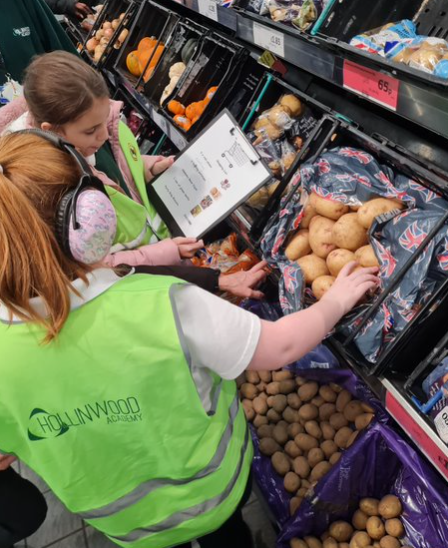
Schemes of Work
At Hollinwood Academy, our Maths curriculum aligns with the 2014 National Curriculum in England, ensuring high-quality education for our children and young people. To guide our teaching, our teachers follow the White Rose Schemes of Work, which provide a structured approach to mathematics learning.
The White Rose Schemes of Work offer a comprehensive framework for each year group. Teachers utilise these schemes by following specific blocks and topics of learning that have been adapted to suit the needs and abilities of our children and young people. By adhering to these schemes, we can deliver a consistent and progressive curriculum, helping children and young people to build a strong foundation in mathematics.
The White Rose Schemes of Work encompass various mathematical concepts and skills, such as number sense, calculations, geometry, measurement, and data handling. They offer detailed lesson plans, resources, and assessments, ensuring a well-rounded and engaging learning experience for our children and young people.
To learn more about the White Rose Scheme of Work and its implementation in our school, please visit White Rose Maths - New schemes for 2022/23 (whiteroseeducation.com)
By following the White Rose Schemes of Work, we aim to foster our learners’ mathematical understanding and proficiency, equipping them with the skills necessary for success in their academic journey and beyond.
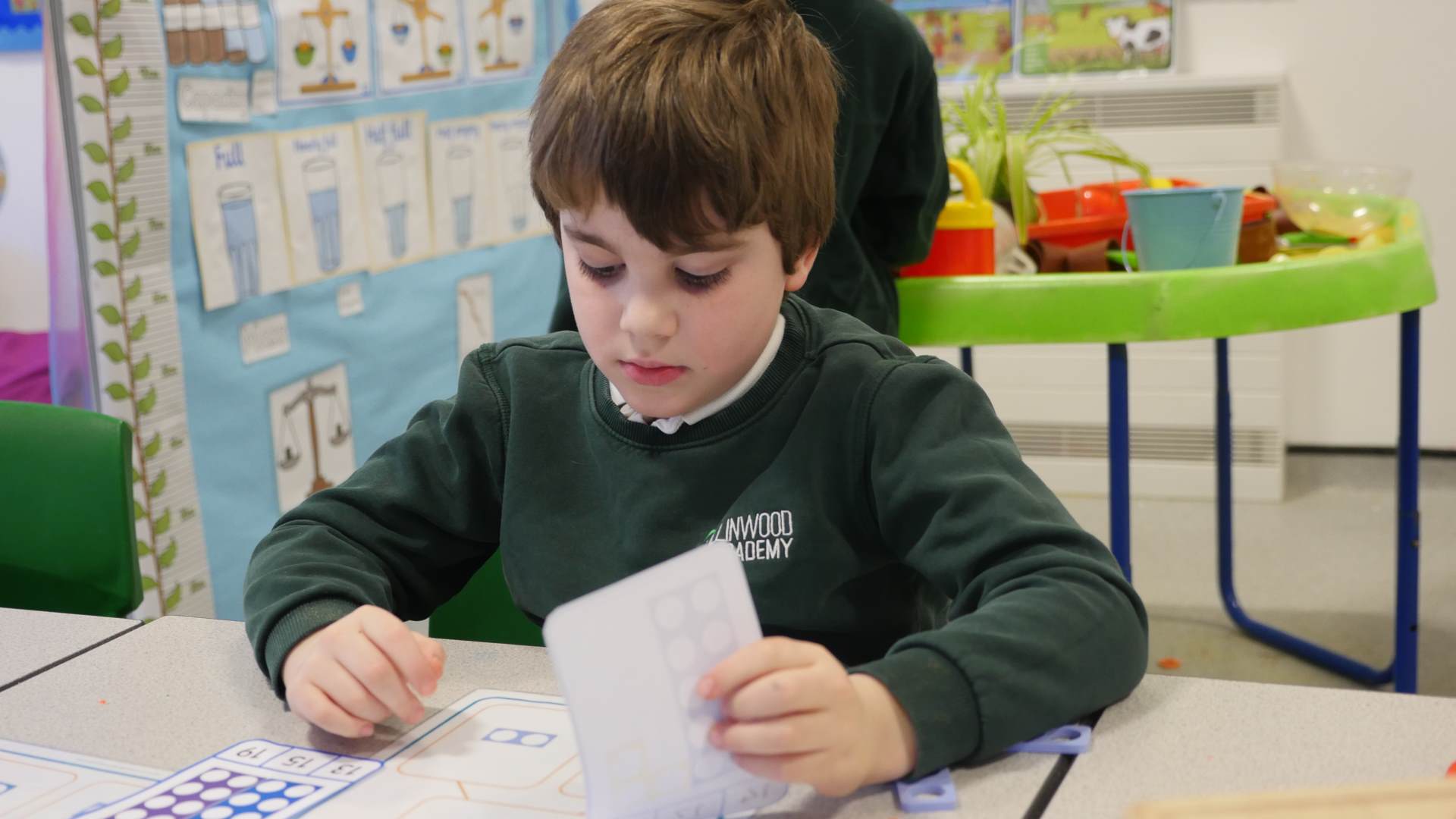
Communication Mathematics Curriculum
The intent for the communication mathematics curriculum is to provide an immersive and integrated approach to mathematics education. This entails threading the mathematics curriculum throughout the timetable, ensuring that all children and young people are exposed to mathematical concepts and skills in various contexts and settings throughout the school day.
The immersive communication mathematics curriculum aims to create an environment where children and young people are continuously engaged with mathematical thinking and problem-solving. By seamlessly integrating mathematics into the day-to-day routines, children and young people are provided with frequent opportunities to apply mathematical concepts in real-life situations, thus promoting a deeper understanding of the basic mathematical concepts.
Throughout the school day, children and young people will encounter mathematics in diverse forms. This could be during their daily routines, such as through activities like counting the number of students present, or through the use of number rhymes and songs to develop a strong foundation in early numeracy. Furthermore, children and young people will have exposure to counting in various contexts and practical activities, enabling them to develop a secure understanding of number concepts.
In addition, children and young people will engage in activities that promote sorting and categorising, providing them with opportunities to recognise patterns and use logical thinking skills. Furthermore, exposure to shapes through hands-on activities and visual aids will support the development of spatial awareness and promote an understanding of fundamental geometric concepts.
The immersive communication mathematics curriculum is underpinned by the prerequisites of the six key areas of early mathematics learning:
- Cardinality and Counting
- Comparison
- Composition
- Pattern
- Shape and Space
- Measures
This comprehensive approach ensures that children and young people develop a solid foundation in mathematics, which is integrated into their daily experiences and routines. By embedding mathematical concepts across various contexts, the immersive mathematics curriculum aims to nurture a deep-rooted understanding of mathematics, paving the way for lifelong mathematical proficiency and a positive attitude towards the subject.
Communication Maths Curriculum
Curriculum Adaptations and Pedagogy
The curriculum adaptations and pedagogy at Hollinwood Academy is centered around meeting the unique needs and abilities of every learner, ensuring equal opportunities for academic, personal, and social development. The primary goals include:
1. Inclusivity: Adapt the curriculum to ensure that all learners have access to quality education, regardless of their individual needs.
2. Adaptive Teaching: Provide personalised learning experiences that cater to the diverse abilities, interests, and learning styles of the children and young people.
3. Progression: Foster a holistic and sequential approach to learning, allowing children and young people to build on their prior knowledge, skills, and understanding from their identified starting points.
4. Empowerment: Develop independent learners who are equipped with the skills, resilience, and self-confidence required to succeed academically and, in their future lives.
Curriculum Adaptations and Pedagogy
Assessment
At Hollinwood Academy, we employ a comprehensive approach to assessing every child and young person’s progress in mathematics. Our assessments are designed to align with the 2014 National Curriculum in England and are based on the White Rose schemes of work.
At the end of each block, we administer assessments to ascertain the progress made by our children and young people. These assessments are instrumental in measuring their proficiency in various mathematical concepts and skills. By utilising these assessments, we ensure that our teaching remains closely aligned with the national curriculum, enabling us to identify areas where additional support or challenge is required.
For children and young people who are working below the National Curriculum standards, we employ pre-key stage standards to assess their performance. Additionally, children and young people who are working even below pre-key stage standards are assessed using the Engagement model of learning, which takes into account their individual learning needs.
To provide individualised support, each child and young person has bespoke and personalised maths progress targets, which we track closely. We believe in fostering a strong partnership with parents, and hence, share these targets with them on a termly basis via Arbor, our digital communication platform.
By adopting this rigorous and tailored approach to maths assessments, we strive to ensure that all our children and young people in formal develop a solid foundation in mathematics and achieve their full potential.
Technology
We firmly believe in the power of technology to enhance learning, and we have made it an integral part of our Maths curriculum. At the primary stage, we embrace the use of iPads and other technological tools, enabling all children and young people to engage actively with their learning. By utilising these resources, we aim to remove barriers and make Maths accessible for every child and young person.
All children and young people have access to a wide range of interactive maths and learning apps, including:
TTRockstars, a highly interactive platform that allows students to practice key Maths skills through engaging and competitive games.
Numbots, another interactive Maths program that focuses on developing children's fluency and number sense.
BBC Bitesize, a wide variety of interactive and engaging maths games
DragonBox, and interactive and engaging maths experience
To further consolidate learning, we also incorporate various interactive maths games into our lessons. These games provide children and young people with opportunities to apply their mathematical knowledge and skills in a stimulating and enjoyable way. By making use of technology in such a manner, we not only enhance understanding but also instil a love for maths in our children and young people. At Hollinwood Academy, we firmly believe that by embracing technology, we can empower our children and young people to overcome challenges and reach their full potential in maths and beyond.
TT Rock Stars TopMarks BBC Bitesize DragonBox
